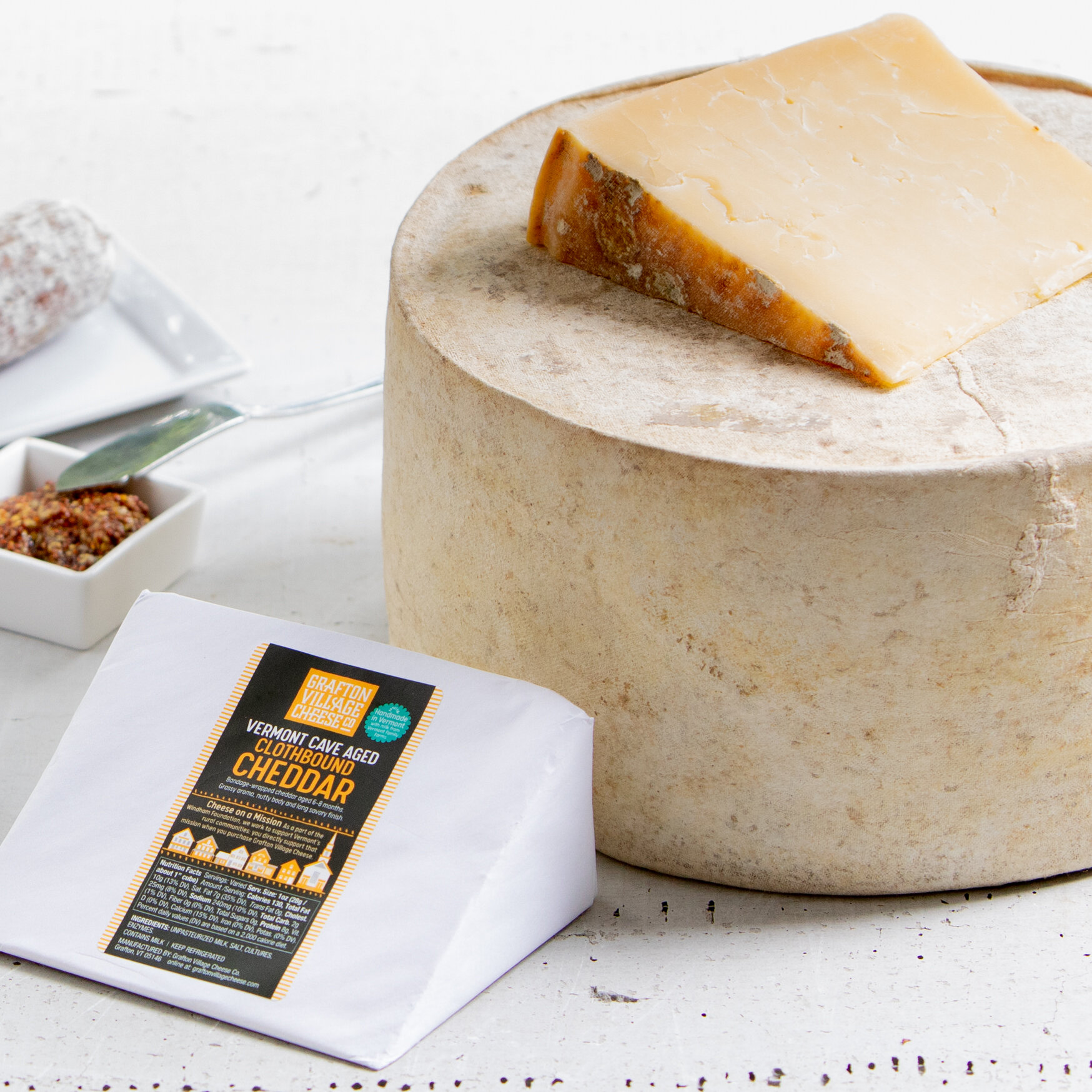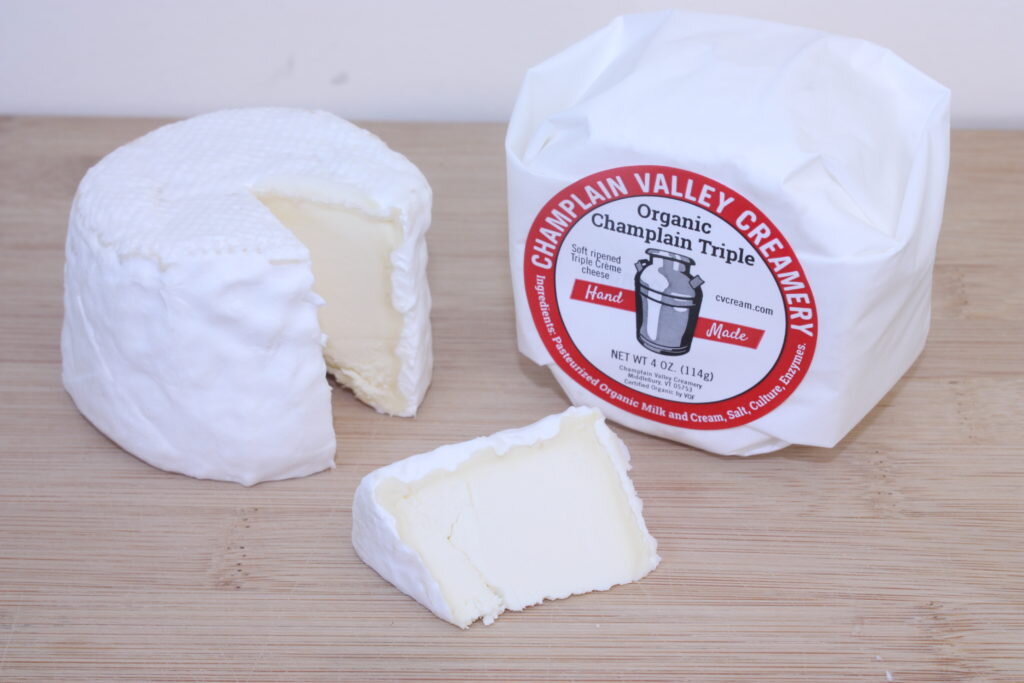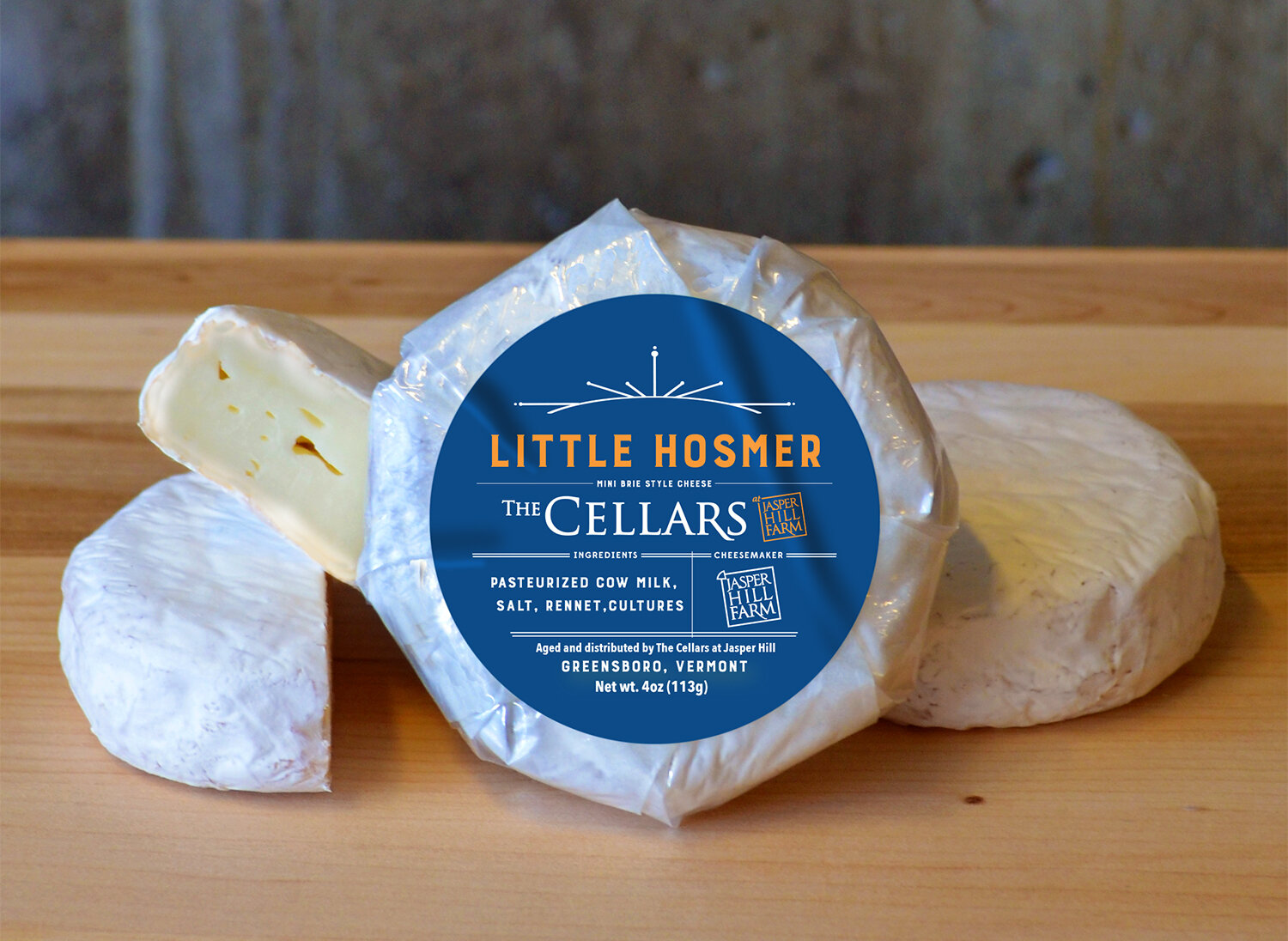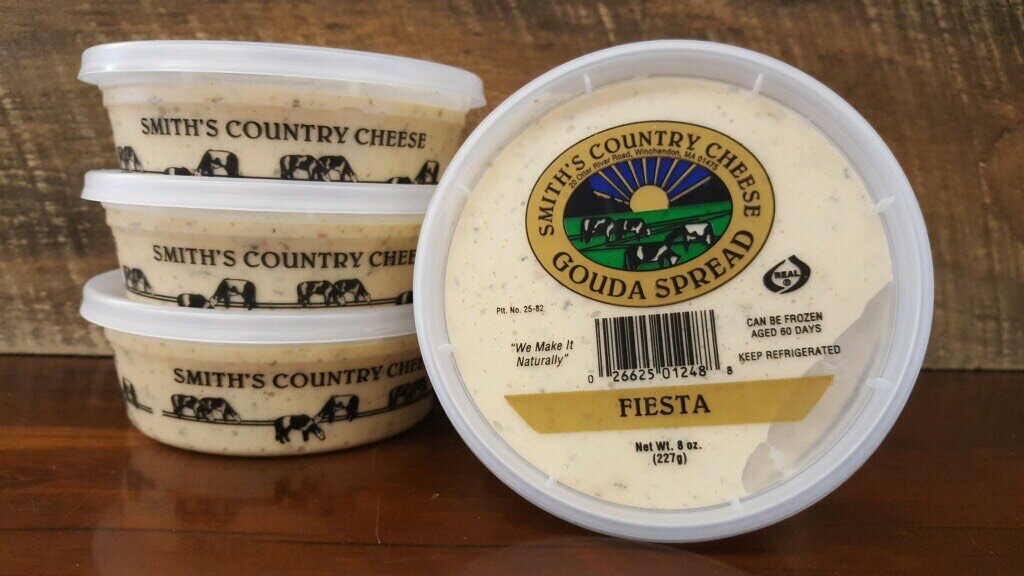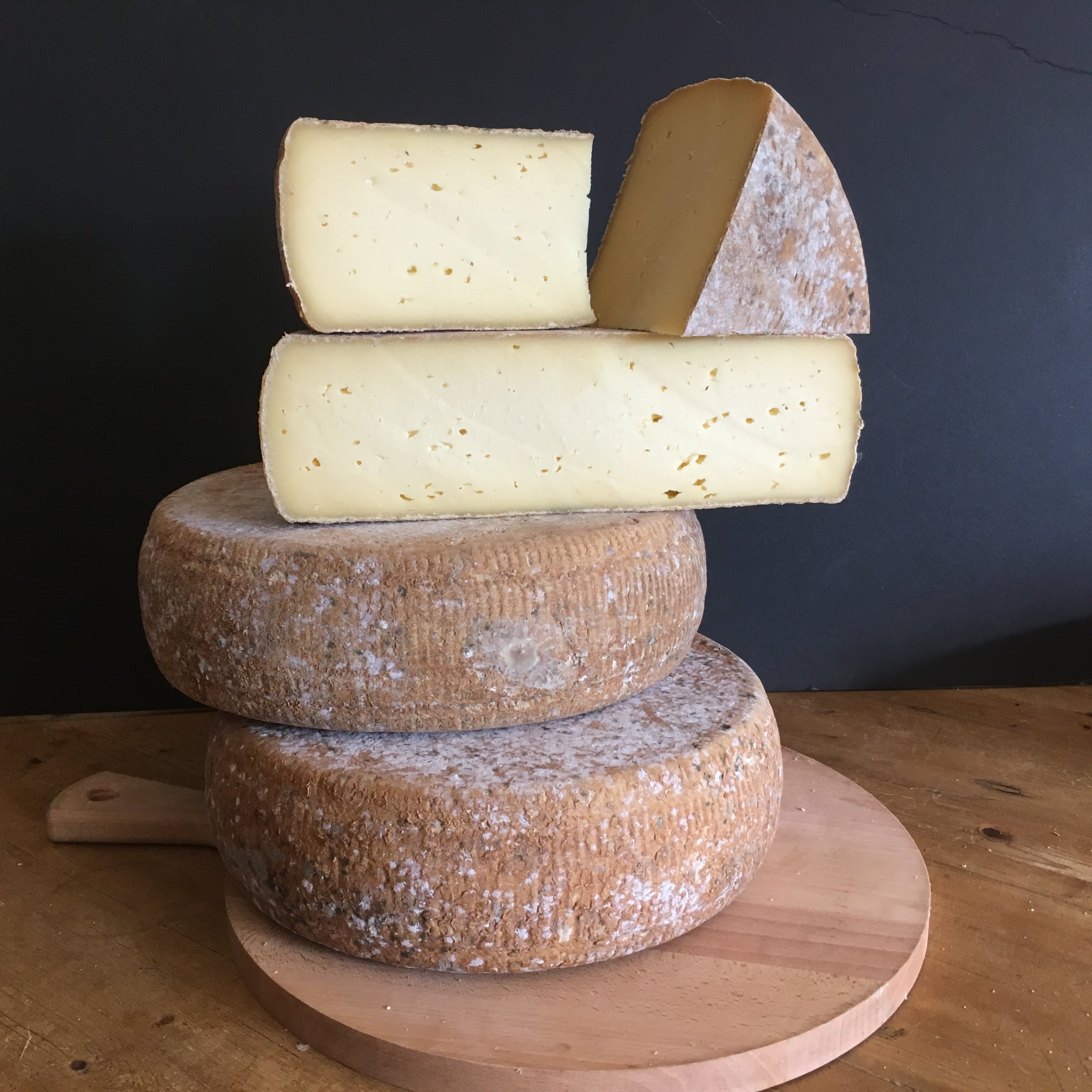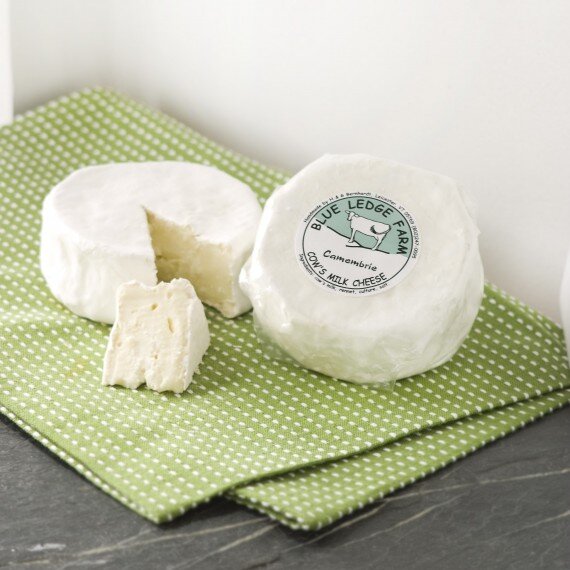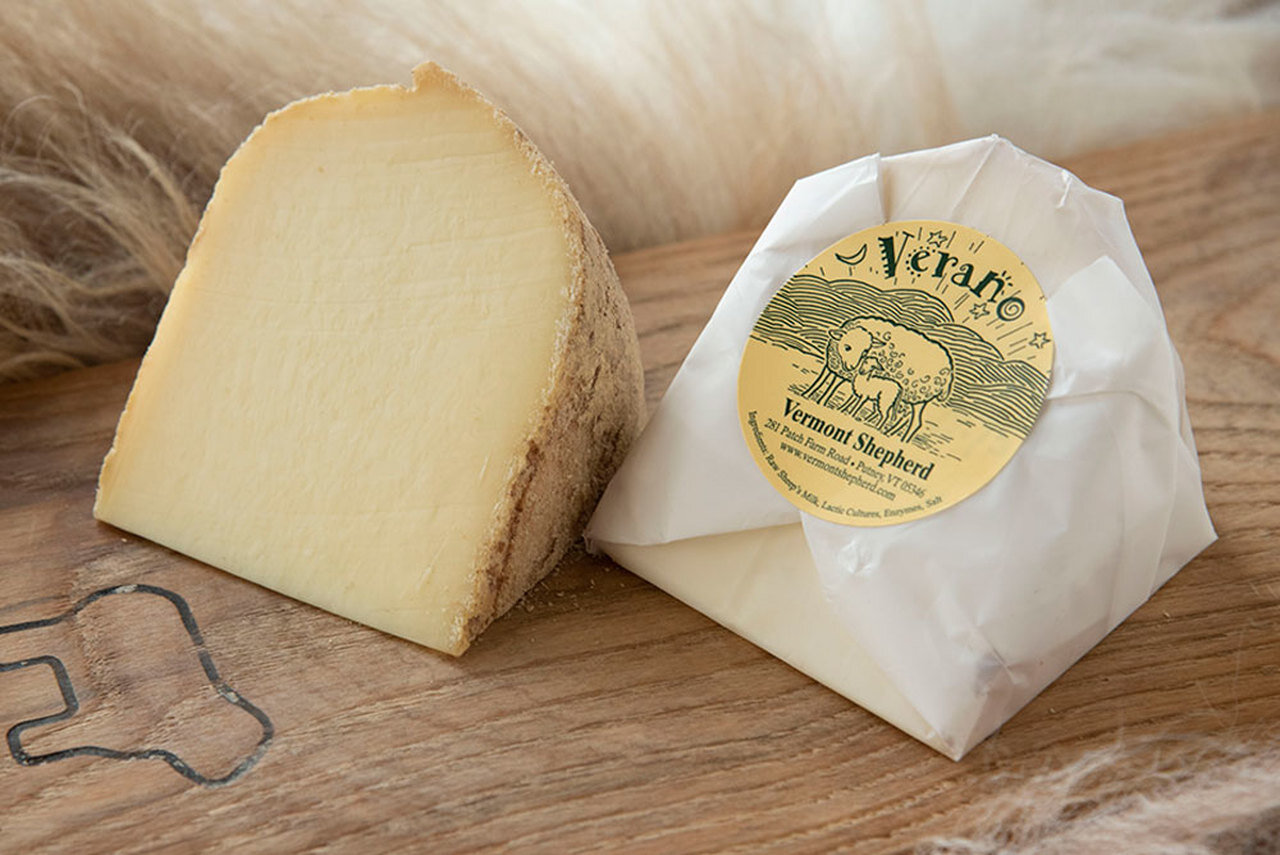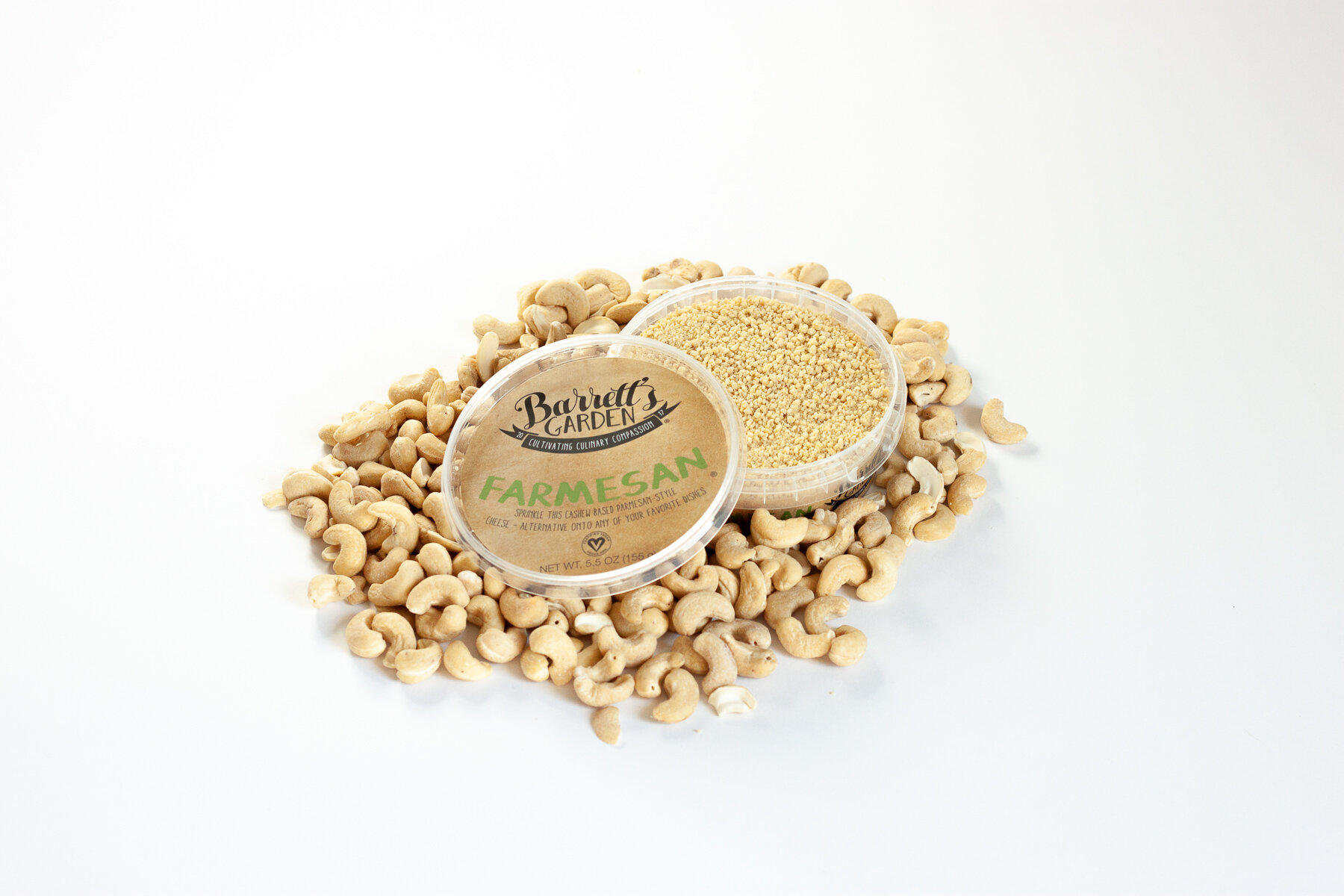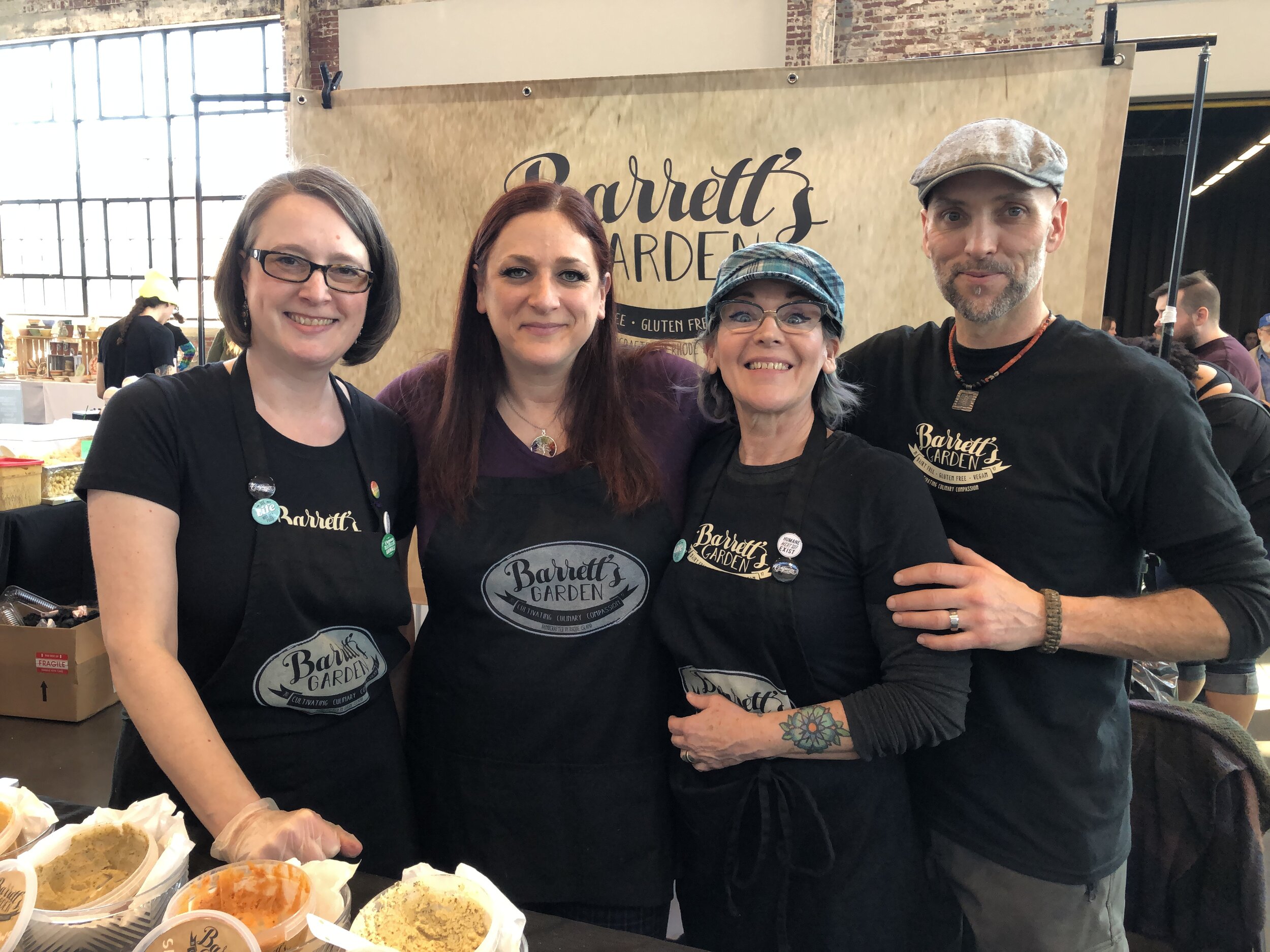New England cheese! Cheesemakers in Vermont and around New England are renowned worldwide and for good reason. Tucked away in remote corners and valleys, our little region’s specialty creameries put out some of the most innovative and complex cheeses you’ll find anywhere. No, New Englanders may not generally be the most adventurous in the face of a habanero chili, but when it comes to cheese, “milk’s leap toward immortality,” the inhabitants of this region appear to be positively daring.
Unfortunately, 2020 squeezed New England cheesemakers. Restaurants and institutional food service—both major income sources for specialty cheesemakers—suffered huge losses in the face of pandemic fears, as did the classic cheese counter model (such as the cheese department at your local Co-op or Hannaford) with its focus on custom cut-and-wrap sales. Consumers shifted their purchasing toward pre-packaged cheeses and away from big-box grocery stores, towards smaller, local outlets and home delivery services. As a result, many cheesemakers lost their main markets. Those who could do so responded by retooling for pre-cut and pre-wrapped sales.
Networking for a Better Food System
In February 2020, a month before that unpleasant turn of events, Richard Berkfield and Alex McCullough from Food Connects had traveled to Upperville, Virginia. They joined nine other East Coast food hubs in a gathering that was the brainchild of Tom McDougall, owner of 4P Foods, a food hub based in Warrenton, VA, and serving the Washington, D.C. area. Food hub representatives from as far north as Maine and as far south as South Carolina converged to tackle one big question: How can we work together to serve our producers and customers better?
All of us dreamed, independently, of taking part in creating a resilient, decentralized food system, one based in sourcing from family-run farms and food businesses, in promoting food produced with social and ecological integrity, and in celebrating our regions’ foods in a spirit of collaboration and sharing.
Out of this convening, the Eastern Food Hub Collaborative (EFC) was born. Local Food Hub, 11-year-old Charlottesville, Virginia-based nonprofit with a long history running programming for food distribution and food access, is now organizing this collaboration. The EFC connects a still-growing roster of 14 East Coast food hubs, 600+ producers, and tens of millions of dollars of aggregate annual sales in a shared mission to scale a new paradigm of food for the East Coast.
As a group, we intuited that we’d always source first from our own local and regional producers within our respective hubs. And we could do that while also providing customers access to unique products from other places up and down the East Coast. And, conversely, at Food Connects, we could do so while introducing other regions to the special foods that only New England can offer.
What better way to show off New England than with cheese?
Connecting Cheese to Networks, and People to Cheese
Tom from 4P Foods declared on the first day of our convening in Virginia that 4P wanted to sell New England cheese. Richard and Alex drove home with a mission and a lot of work to do. That summer, with the guiding hand of Beth Lewand, former cheesemonger extraordinaire and Food Connects’ then-new Sales Associate, we launched our Specialty Cheese Catalog. At that time, the catalog acted as a testing ground to build supply relationships, learn about products, solve inbound logistics, and start figuring out new ways to supply customers with great cheese.
It turned out that the pre-cut cheeses that cheesemakers had emphasized since the COVID-19 crisis suddenly worked very well for much of Food Connects’ customer base: for farm stands, CSAs, small independent stores—and for home-delivery food hubs like 4P.
In coordination with buyers Justin White and Devon Byrne from 4P, Food Connects shipped its first pallet of cheese to Virginia on May 12, 2021, as a pilot run. Would the cheese make it through the 500+ mile trip? Would customers buy it? Would they come back to buy more?
We’re proud to announce a resounding “Yes” to all of the above! June 24–just last week!–marked our second and even larger cheese pallet shipment to 4P Foods. Stacked high with boxes from Grafton Village Cheese, Jasper Hill Farm, Smith’s Country Cheese, Narragansett Creamery, Parish Hill Creamery, Champlain Valley Creamery, Blue Ledge Farm, and Vermont Shepherd, this pallet represents Food Connects’ commitment to leveraging our unique location in the heart of New England to build a meaningful, brand new market outlet for our region’s cheesemakers.













